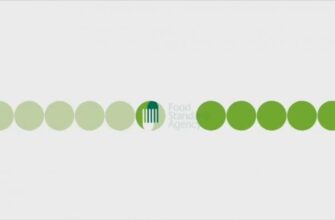Your body’s ability to manage blood sugar is intricately linked to various lifestyle choices, resulting in frequent shifts in glucose levels. Maintaining equilibrium within this system is essential for optimal health and well-being, according to registered nutritionist Ailsa Hichens.
“A meal designed to stabilize blood sugar should incorporate a quality protein source, ample fiber, and slow-releasing carbohydrates – all while avoiding added sugars,” Hichens clarifies. She suggests initiating your day with nutrient-dense options like eggs and Greek yogurt.
The Power of Protein: Protein is crucial for satiety and curbing cravings, and it also supports muscle development. Hichens refers to muscle as “metabolic gold” because it’s vital for regulating blood glucose. As she notes, “The greater your muscle mass, the more glucose your body utilizes.” Fiber plays an equally important role by moderating the rate at which glucose enters the bloodstream.
This gradual release promotes prolonged feelings of fullness and offers additional health advantages such as improved digestive regularity and reduced cholesterol levels.
Hichens cautions that starting the day with common breakfast cereals, even those marketed as healthier, low-sugar options, can frequently lead to mid-morning cravings due to subsequent blood sugar dips. Instead, she advocates for breakfasts designed for sustained stability throughout the entire day, and offers these recommendations:
- An omelet filled with your preferred ingredients
- Two eggs (poached, boiled, or scrambled) served on a single slice of whole-grain toast
- Greek yogurt topped with berries and a sprinkle of nuts and seeds
- Protein oats – prepared either as overnight oats using protein powder or by combining 40g dry weight of oats soaked overnight with Greek yogurt, berries, and a spoonful of nut butter
These thoughtfully composed meals provide enduring energy without the dramatic blood sugar swings.
Hichens dispels the myth of “magic” foods that can instantly correct elevated blood sugar. Instead, she emphasizes physical activity as the most effective approach to managing glucose levels. “The most reliable strategy is exercise, which utilizes excess sugar,” she explains. It doesn’t necessitate intense workouts; even simple activities like lifting weights, performing squats, or taking a walk are beneficial because “muscles effectively absorb glucose.”
Evening eating habits also significantly influence blood sugar stability and sleep quality. Hichens warns that consuming large meals close to bedtime without subsequent activity can result in elevated blood sugar levels overnight. This cyclical pattern—a “blood sugar rollercoaster”—can disrupt sleep, particularly during the 2am-3am window. To mitigate this, she suggests a small, balanced snack before bed, such as an oatcake with hummus, to help maintain stable glucose levels throughout the night.







